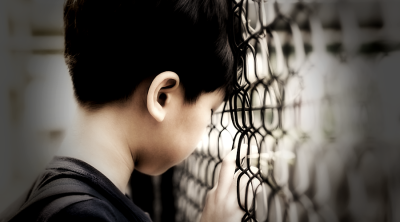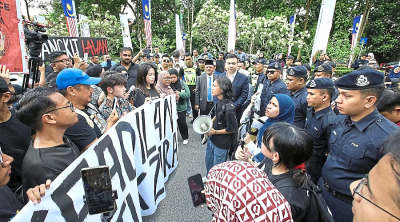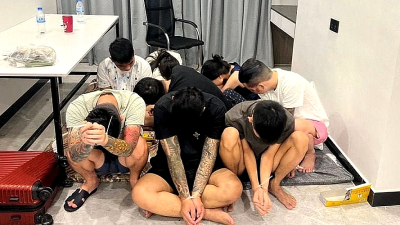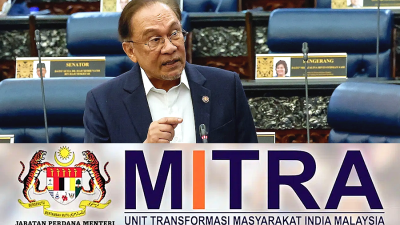
The tragic death of Zara Qairina Mahathir, possibly linked to bullying, has ignited a nationwide dialogue on bullying in schools and spurred the government to seriously consider the problem.
We hope this will not be limited to a ‘media cycle’ but will bring concerted change that will reduce the huge problem of bullying in schools and institutions of higher education.
We are concerned that current measures by the government are predominantly looking at punitive approaches.
While an ‘Anti-Bullying Act’ with a tribunal may be useful, it will not be effective in dealing with the endemic problem of bullying.
A quick look at the data will tell us that a tribunal cannot be effective. 3 in 4 children admitted to being bullied in the classroom (Children4Change survey, UNICEF 2018).
1 in 6 bullied in the last 30 days (NHMS survey 2017; we have not quoted the 2022 NHMS data as it was impaired by the COVID-19 pandemic.
Our children worry more about bullying (7 out of 10) compared to children in Japan (3:10) or the United Kingdom (4:10) (World Children’s Day survey, UNICEF 2017).
The problem is huge and we have not given it adequate attention for years.
The problem is likely to be more severe in boarding schools and with cyberbullying.
We also have not addressed the equally important and common problem of bullying by teachers and by those in authority in society.
Hence, our interest and focus is better served at working to prevent bullying in schools and society.
Almost every Malaysian will have an opinion on what needs to be done; we can see this from social media posts.
We are delighted that the Parliament Select Committee (PSC) for Women, Children, and Community Development, chaired by Yeo Bee Yin, Member of Parliament for Puchong, is looking at the issue.
However, it is also critical that we listen to children and their views on this.
We would like to emphasize here that we are best-off looking at the evidence and identifying what works from other nations and research, rather than putting in place measures that are untested.
Effective bullying prevention programs involve ‘multi-tiered systems of support (MTSS)’.
The components of most MTSS intervention programs include the use of universal prevention strategies and selective or targeted prevention strategies.
They involve children in collaborative problem solving and have progress monitoring.
They are continual and not a one-off activity, and are not static but have the capacity to change with the data/evidence.
Bullying in our society is not just a school problem but a responsibility for all of society to change and become more inclusive and accepting of diversity.
At the universal prevention level (Tier 1), we need school-wide prevention efforts for all students i.e. ‘a whole-of-school approach’. This includes:
■ Anti-bullying policies and rules: Clearly defined rules against bullying with consistent consequences.
■ Curriculum and classroom activities: Integrating social-emotional learning, empathy development, and conflict resolution skills into the curriculum.
■ Teacher training: Equipping staff to recognize, respond to, and prevent bullying effectively.
■ Parental involvement: Educating parents about bullying and encouraging their active participation in prevention efforts.
■ Improved supervision: Increasing adult presence in areas where bullying is likely to occur.
■ School-wide awareness campaigns: Activities to raise awareness about bullying and promote a positive school climate. With social-emotional learning programs that focus on teaching students essential social and emotional skills that can help prevent bullying.
■ Bystander intervention programs: These programs empower students who witness bullying to intervene safely and effectively. They promote a ‘caring majority’ where students actively support those being bullied.
At the selective prevention level (Tier 2), we have prevention efforts targeted at specific groups of students, those at higher risk of being involved in bullying (either as perpetrators or victims).
This might include small group social skills training. This includes:
■ Strategies for students who bully: empathy development activities; anger management and conflict resolution training; consequences for bullying behavior; restorative justice approaches.
■ Strategies for students who are victimized: assertiveness training; social skills training; relationship skills; building peer support networks.
At Tier 3 we focus students who are chronically involved in bullying (bullies) or experiencing significant negative effects (victims). This will involve intensive, individualized support including counselling and family support.
It is important to remember that, in order to tackle bullying, it is not sufficient to just look at the behavior, it is necessary to address the underlying motive(s).
Studies have shown many different motives for bullying which include: dominance, status, resources, revenge, justice, belonging, identity, well-being, and entertainment.
A sizable proportion of bullies have experienced violence and bullying at home and hence are acting out in school.
All bullies should be evaluated for abuse at home. Bullying is not just a school issue.
It’s important to note that the most effective bullying prevention strategies often involve a combination of approaches, implemented consistently and with the active participation of the entire school community, including students, staff, parents, administrators and society.
We would appeal for an evidence-based and holistic approach to deal with the large problem of bullying in our schools and extend this to institutions of higher education.
There is no quick fix and no simple solutions. We will have to invest in the hard work to reform our systems and society.
Bullying in our society is not just a school problem but a responsibility for all of society to change and become more inclusive and accepting of diversity.
Click here for list of signatories

ADVERTISEMENT
ADVERTISEMENT








































